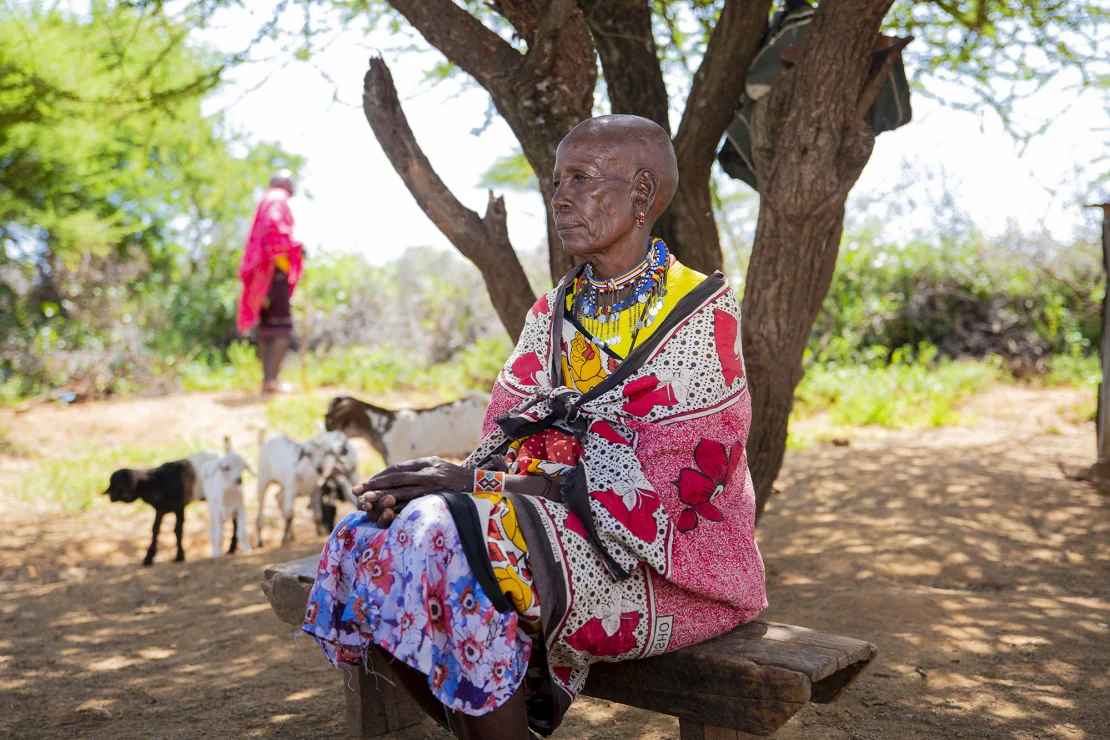Marian Pannalossy, 17, has a remarkable presence wherever she goes in Archer’s Post, a tiny hamlet located 200 miles north of Nairobi. She is light-skinned and lives alone in a community where mixed-race persons are uncommon and are consequently shunned. “They refer to me as’mzungu maskini,’ or impoverished Caucasian girl,” she trembled as she spoke to CNN from her one-room home. “They ask, ‘Why are you here?’ every time. Simply seek out relationships so that you can reach out to your own folks. You’re not welcome here. It’s not supposed for you to be in this pain.
Despite never having met him, Marian thinks her father was a British soldier. She’s not even familiar with his name.Mixed-race children continue to be born in the remote villages where the British Army trains its soldiers in Kenya. The British Army Training Unit, Kenya (BATUK), is headquartered in the town of Nanyuki, about 70 miles southwest of Archer’s Post. BATUK is currently under investigation by the Defense, Intelligence and Foreign Relations committee of Kenya’s National Assembly.
It has held public hearings in several areas where British troops train and heard a litany of complaints about abuse, exploitation, and sexual assaults from communities around them. It intends to hear from BATUK officials and the British High Commissioner to Kenya at the end of its work later this month, according to a schedule shared with CNN. One of the more contentious accusations against British soldiers involves the case of Agnes Wanjiru. Wanjiru, a 21-year-old Kenyan woman, vanished in 2012 after entering a hotel with British soldiers, according to reports.
Her body was later found in a septic tank. Despite a Kenyan inquest ruling her death a murder and the reported identification of a suspect by fellow soldiers, the British soldier allegedly involved hasn’t faced charges. Wanjiru’s family believes British officials are indifferent to her case and pleaded with the King for help during his visit to Kenya.
A British High Commission spokesperson said it takes all allegations raised by the community seriously and it will ensure thorough investigations. “All sexual activity which involves the abuse of power, including buying sex whether in the UK or abroad, is prohibited,” the British High Commission, speaking on behalf of BATUK, said in a statement to CNN.
“We are committed to preventing sexual exploitation in any form and investigate and hold to account any Service Personnel found to be involved in it.” Britain pays Kenya about $400,000 a year to allow its soldiers to train in the East African country, mostly in the expansive wildlife conservancies in Laikipia and Samburu counties.Kenya renewed the defense pact in 2021 despite strong local opposition. BATUK has a permanent training base in Nanyuki, to the south of those wildlife conservancies, with 100 full-time staff.
The Defense, Intelligence and Foreign Relations committee’s work has renewed scrutiny of the British Army’s operations in Kenya and once again brought attention to the cases of the women who have accused soldiers of rape over several decades. Allegations of rape and other crimes, including murder, by British soldiers deployed their date back to the 1950s. “This to us is an example of British boys behaving badly,” said Marian Mutugi, a commissioner for the Kenya National Commission on Human Rights. “This is a matter of taking care of the vulnerable in our society who our constitution says require special protection.”
She’s referring to hundreds of women from the mostly pastoralist Maasai and Samburu communities who accused the British Army of rapes in the 1970s and 80s.They were represented by the British lawyer Martyn Day in a landmark civil case in London in the early 2000s. Ntoyie Lenkanan, 72, was among the complainants in the British case. Nearly forty years later, her voice trembles with emotion and barely controlled anger as she recounts her ordeal.
Source: Here

